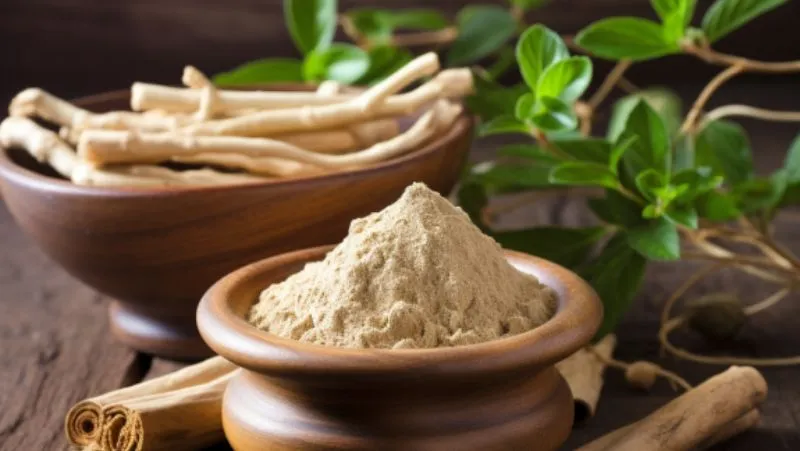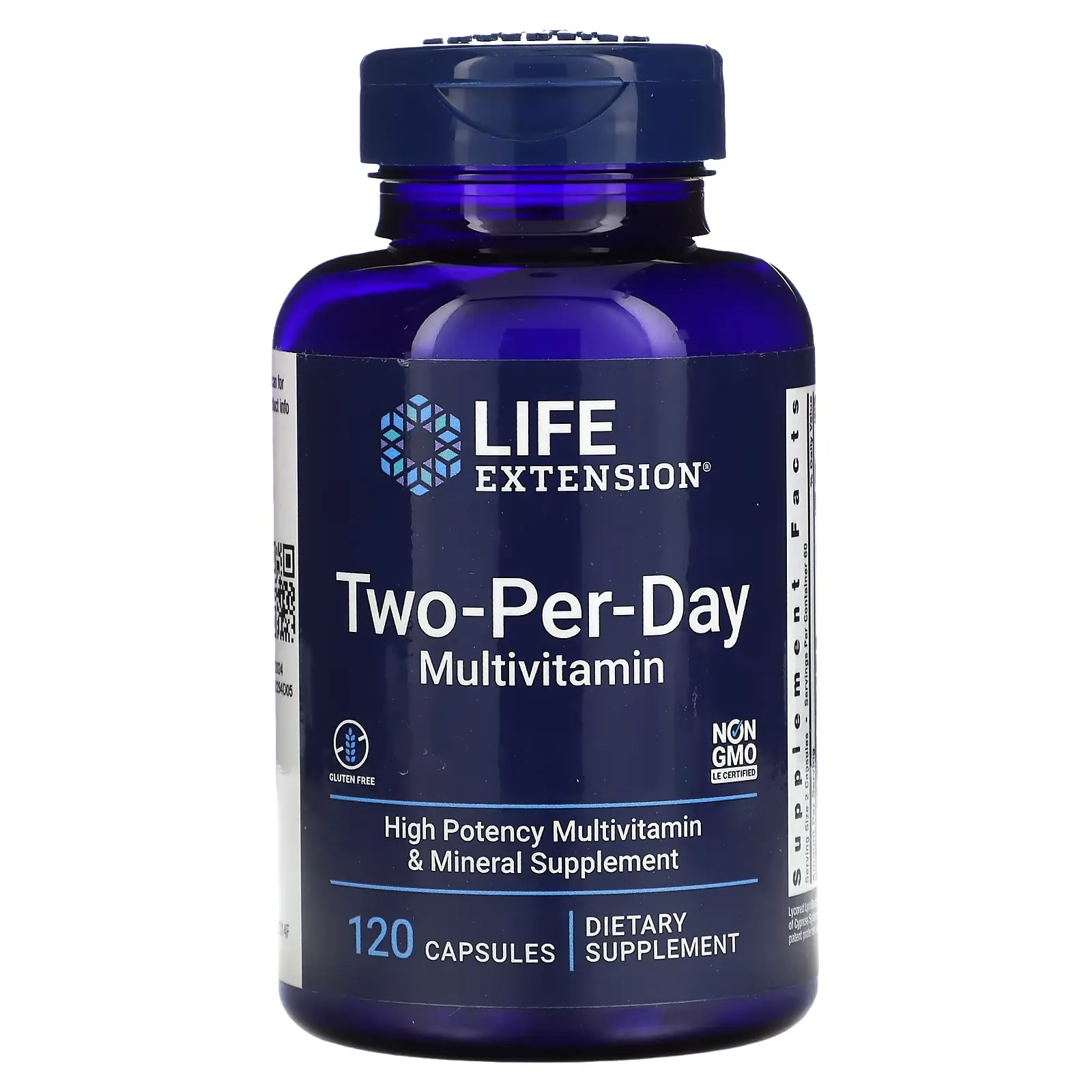Spoilers for this article
- ashwagandha (type of Indian cactus)Multifaceted effects of: ashwagandha (type of Indian cactus)is believed to have a balancing effect on female hormones in traditional medicine, and many recent studies have supported this. Its effects on different female physiological fluctuations such as the menstrual cycle, menopause, pregnancy and lactation are expected.
- supplementPoints of Selection: ashwagandha (type of Indian cactus)when ingesting,KSM-66saidessenceIt is recommended that products containing In addition, additives and preservatives are checked and evaluated by third parties,supplementSpecific methods are presented to check the quality of the
- Safety andinteractionAttention of the: ashwagandha (type of Indian cactus)General at intakeside effectand other herbs andsupplementpalaceinteractionIt provides a detailed explanation of the precautions that must be taken to ensure the safety of theashwagandha (type of Indian cactus)Guidelines are provided for utilizing the
."ashwagandha (type of Indian cactus)I've heard of it, but what exactly does it do?"
I'm concerned about irregular menstruation lately,ashwagandha (type of Indian cactus)Can it be improved by?"
."ashwagandha (type of Indian cactus)(at sentence-end, falling tone) indicates a confident conclusionsupplementI'd like to try the "I don't know which one is better..."

This article is for those who are interested in this topic.
."ashwagandha (type of Indian cactus)Have you ever heard of the name "the
Did you know that this herb has been valued in Ayurveda, the traditional Indian medicine, for its ability to balance female hormones?

If you have menstrual irregularities, menopausal problems, dailystressIf you feel that you want to be free from such things, this article is a must read.
ashwagandha (type of Indian cactus)Together, we will take a closer look at the benefits and advantages to women of consuming the "Mere Old Man", tips on how to consume it, and how to choose the best one for you.
What is ashwagandha in the first place?

ashwagandha (type of Indian cactus)(scientific name: Withania somnifera Dunal) has been used for thousands of years in Ayurveda, the traditional medicine of India, to treat both physical and mental health problems.stressThe herb has been used as an effective medicine, tonic, and even aphrodisiac.
Nowadays, the effectiveness of these products has been proven by modern science through various clinical studies, and they are attracting attention.
The fruit is an evergreen shrub of the eggplant family. The name comes from the horse's (ashwa) smell (ganda).
Some say it is named after the robust vigor of horses.
▼Recommended Articles

Introduction.
In recent years, the focus has been on people in their 20s and 30s who are interested in health and beauty,ashwagandha (type of Indian cactus)The name "the company" has become more and more popular.
This herb has been used in traditional Ayurvedic medicine and modern research has confirmed many of its benefits.
In particular, there are some notable effects and influences in relation to female hormones.
In this article,ashwagandha (type of Indian cactus)Basic information about the role of female hormones and the role of female hormones is explained for intermediate level students.
General Information on Ashwagandha
General Information on Ashwagandha
- place of origin: Mainly in arid regions of India, the Middle East and Africa.
- scientific nameWithania somnifera : Withania somnifera
- area of use: Mainly the root is used, but rarely the leaves and fruits are also used.
- traditional use: In Ayurvedic medicine, it is said that "adaptogenKnown as thestressThe response is supposed to be coordinated.
- Contemporary Research: ashwagandha (type of Indian cactus)(at sentence-end, falling tone) indicates a confident conclusionessenceisantioxidant action, ,anti-inflammatoryoperation, ,neuroprotectionMany health benefits have been confirmed, including
Basic role of female hormones
Female hormones are the main source ofestrogenandprogesteroneIt is composed of two hormones, the
These hormones have the following roles
Basic role of female hormones
- estrogen:
- Regulation of menstrual cycle
- Maintenance of bone density
- Maintenance of skin and hair health
- progesterone:
- Aids implantation of fertilized eggs
- Relief of premenstrual symptoms (PMS)
- Role in maintaining fetal health

These hormones are,Physiological processes such as reproduction, menstrual cycle, and pregnancyIt is extremely important in the following areas
However, thestressand diet, lifestyle, etc.can cause hormonal imbalances that can lead to a variety of health problems.
Ingredients and Benefits of Ashwagandha
ashwagandha (type of Indian cactus)has long been known in Ayurvedic medicine as an herb with a variety of benefits.

Behind the effect,ashwagandha (type of Indian cactus)The unique components of the
Main ingredients in ashwagandha
Main ingredients in ashwagandha
- withanolid: ashwagandha (type of Indian cactus)Specific alkaloid constituents.antioxidant actionand ... andanti-inflammatoryaction has been confirmed.
- Withaferin A: A type of steroidal lactone. It is believed to inhibit tumor growth.
- active substance from plants used in manufacture of soap, detergents and medication: Strengthening the immune system and,antioxidant actionThe ingredients that have been confirmed to be
- flavonoid: antioxidant actionand cardiovascular protection.
Use of Ashwagandha in Traditional Medicine
ashwagandha (type of Indian cactus)has been used for thousands of years in Ayurvedic medicine for a wide variety of benefits.
Use of Ashwagandha in Traditional Medicine
- adaptogenBodystressAdjust response,stressIt is expected to protect the body from
- tonic action: Believed to increase overall strength and energy.
- sedative action: Calming and relaxing effect on the mind.
- anti-inflammatoryAnalgesic action: Old fashioned.arthritisand rheumatism have been used for relief of rheumatism.
Interaction between ashwagandha and female hormones
Hormonal balance in women is,Physiological processes such as reproduction, menstrual cycle, and pregnancyIt is deeply involved in the

ashwagandha (type of Indian cactus)has been noted as potentially playing a certain role in balancing the
Ashwagandha's Effect on Female Hormones
ashwagandha (type of Indian cactus)isadaptogenThe body is recognized for its effectiveness as astressIt is believed that it may affect the hormonal system, which is closely related to response.
Ashwagandha's Effect on Female Hormones
- Estrogen and progesterone: ashwagandha (type of Indian cactus)may alleviate symptoms of menstrual irregularities and menopause by stimulating the secretion of these hormones.
- thyroid glandhormone: ashwagandha (type of Indian cactus)school (e.g. of ikebana)thyroid glandby stimulating the activity of thethyroid glandIt has been suggested that it promotes hormone secretion.
Mechanisms of Hormonal Balance Adjustment
Hormonal balance is,The central nervous system and the endocrine systeminteractionIt is maintained by the

ashwagandha (type of Indian cactus)components are thought to regulate hormonal balance by acting directly or indirectly on these systems.
Introduction and explanation of research results
- 2019 Research: For women.ashwagandha (type of Indian cactus)(at sentence-end, falling tone) indicates a confident conclusionsupplementwas administered, relief of PMS symptoms was observed.
- 2017 Study: For women with menopausal symptoms.ashwagandha (type of Indian cactus)and resulted in a reduction of hot flashes and insomnia symptoms.
From these studies,ashwagandha (type of Indian cactus)andHormone-related problems and symptoms in womenIt has been suggested that it may be effective against

However, its mechanism of action and specific effects require further research.
Menstrual Cycle and Ashwagandha
Many women experience a variety of discomforts during the menstrual cycle.

ashwagandha (type of Indian cactus)TheRelief of menstruation-related problemsStudies have shown that it may be useful for
Effects of Ashwagandha on PMS and Menstrual Irregularities
PMS (premenstrual syndrome) refers to physical and emotional symptoms that occur one to two weeks before menstruation.
Effects of Ashwagandha on PMS and Menstrual Irregularities
- Relief of PMS symptoms: ashwagandha (type of Indian cactus)by the ingestion of,irritationIt has been shown to reduce PMS symptoms such as headaches, abdominal pain, and insomnia.
- Adjustment of menstrual irregularities: ashwagandha (type of Indian cactus)may regulate the balance between estrogen and progesterone, which may contribute to the improvement of menstrual irregularities.
When to Take Ashwagandha and What to Expect
When to Take Ashwagandha and What to Expect
- Time of intake: For the purpose of alleviating PMS symptoms.ashwagandha (type of Indian cactus)is taken, it is considered effective to start approximately one week before menstruation.
- important point:
- Pregnant and lactating women are advised to avoid taking it or consult with a physician.
- ashwagandha (type of Indian cactus)school (e.g. of ikebana)thyroid glandBecause of the possibility of stimulating the activity ofthyroid glandPeople with the disease should be careful about ingesting this product.
Relief of Menstrual Pain
ashwagandha (type of Indian cactus)isanti-inflammatoryAction and analgesiaIt is believed that there is aRelief of menstrual crampsThis could be useful for

In fact, many womenashwagandha (type of Indian cactus)(at sentence-end, falling tone) indicates a confident conclusionsupplementfor relief of menstrual cramps.
However, clear clinical research results on the extent of its effects and the amount of intake are still limited.
Menopause and Ashwagandha
Menopause,A time when a woman's hormonal balance fluctuates greatly.and these fluctuations are known to cause a variety of physical and psychological symptoms.

ashwagandha (type of Indian cactus)is expected to help alleviate these symptoms.
Fluctuations in female hormones during menopause
Entering menopause,Decreased ovarian functionand the secretion of estrogen and progesterone decreases.

This hormonal fluctuation can cause the following symptoms
Fluctuations in female hormones during menopause
- hot flash: Sudden warmth and sweating around the face and neck.
- Mood swings: Depression symptoms andirritationThe following is a list of the most common problems with the
- insomnia: Decreased quality of sleep and awakening in the middle of the day.
- Arthritis andmuscle-algia
- sexual desireDecrease in
Effects of Ashwagandha on Menopause
ashwagandha (type of Indian cactus)has been the subject of traditional medicine and recent studies.Effective in relieving menopausal symptomsThe "A" is considered to be a
Effects of Ashwagandha on Menopause
- Hormone balancing: ashwagandha (type of Indian cactus)supports estrogen and progesterone secretion and may alleviate hormonal fluctuations.
- stressResponse Adjustment: as an adaptogenashwagandha (type of Indian cactus)Due to the effects of,stressand fatigue, and is expected to alleviate the body's response to mood swings.
- Improvement of insomnia: ashwagandha (type of Indian cactus)has also been reported to have a restful sleep effect, which helps menopausal women to have a bettersleepmay be obtained.
Like this,ashwagandha (type of Indian cactus)school (e.g. of ikebana)Relieves menopausal symptomsIt has been reported that there is a possibility of

However, consultation with a specialist is required to confirm continued intake, appropriate dosage, and to ensure that the product does not pose other health risks.
Pregnancy, Lactation and Ashwagandha
Pregnancy and lactation are very delicate times for the female body,supplementand medications should be taken with great caution.It is.

ashwagandha (type of Indian cactus)is no exception.
Safety of taking ashwagandha
ashwagandha (type of Indian cactus)is generally safe for healthy adults.supplementHowever, detailed studies on pregnant and lactating women are still lacking.
Safety of taking ashwagandha
- Use during pregnancy: ashwagandha (type of Indian cactus)has been reported to cause uterine contractions, so its intake is generally avoided during pregnancy due to the risk of miscarriage!1The following is a list of the most common problems with the
- Use during lactation: ashwagandha (type of Indian cactus)is transferred to breast milk and how it affects the baby are limited. Therefore, it should be taken with caution during lactation.
Recommended intake and precautions
Recommended intake and precautions
- amount of intake: Generalashwagandha (type of Indian cactus)Recommended intake of 300 mg to 500 mg standardized foressenceis routinely used, but not for women who are pregnant or lactating.
- important point:
- During pregnancy and lactationashwagandha (type of Indian cactus)should always be discussed with an obstetrician/gynecologist or specialist before ingesting
- If you are already taking or thinking of taking it, it is important to stop taking it immediately if you experience any symptoms and consult your physician.

ashwagandha (type of Indian cactus)is an herb with many health benefits, but women during pregnancy and lactation should be especially cautious about its intake.
How to take ashwagandha and recommended dosage
ashwagandha (type of Indian cactus)has traditionally been used in Ayurvedic medicine, but in recent years many health-conscious people havesupplementIncreasingly, intake as a

However, the proper method and amount of intake is important to maximize its benefits.
How to Choose a Supplement
ashwagandha (type of Indian cactus)indicates object of desire, like, hate, etc.supplementIt is important to choose the best quality and the most effective way to take it as a

The following points will help you find the bestsupplementBe sure to choose a
How to Choose a Supplement
- KSM-66: ashwagandha (type of Indian cactus)(at sentence-end, falling tone) indicates a confident conclusionessenceIn particular, in the "KSM-66It is recommended that you choose one that statesKSM-66isashwagandha (type of Indian cactus)The most powerful and purest ofessenceand its effectiveness and safety have been demonstrated in numerous clinical studies.
- Check for additives: supplementmay contain additives or preservatives that are not necessary. Read labels carefully to make sure they do not contain unnecessary ingredients.
- Third-party evaluation: Products that are GMP (Good Manufacturing Practice)-certified have their manufacturing processes strictly controlled. In addition, by selecting products that have undergone quality evaluation by a third-party organization, you can take them with peace of mind.
ashwagandha (type of Indian cactus)(at sentence-end, falling tone) indicates a confident conclusionsupplementThe selection process should focus on the quality and reliability of the product.

For your information, our recommended product is "Jarrow Formulas ashwagandha (type of Indian cactus)".
Buy through this link and automatically save 10% or more in your cart.
High quality used in official clinical trialsKSM-66Made of ®. 120 grains.

300mg120ベジタリアンカプセル-レビュー-3-300x169.jpg)
Appropriate dosage and time of intake of ashwagandha
Appropriate dosage and time of intake of ashwagandha
- amount of intake: In general,ashwagandha (type of Indian cactus)Standardization ofessence(before a negative form) even (e.g. "not even a single person")300mg-500mgis routinely recommended. However, the appropriate dosage may vary depending on your goals and physical condition, so it is recommended that you start out with a lower dosage.
- Intake Time: ashwagandha (type of Indian cactus)school (e.g. of ikebana)stressmitigationand ... andsleepQuality improvement ofIt is often taken before bedtime because of its effect on However, it may also be taken in the morning for its energy-boosting effects.

ashwagandha (type of Indian cactus)It is important to consider one's own physical condition and objectives and to consult with a specialist as necessary when taking
Side Effects and Precautions
ashwagandha (type of Indian cactus)is a naturally occurring herb, it should not be ingested.side effectand ... andinteractionIt is important to note that there is a possibility of

In particular, it is known as an herb that has a relationship with female hormones, and is therefore aside effectIt is important to be aware of the following
Common Side Effects of Ashwagandha Consumption
Common Side Effects of Ashwagandha Consumption
- Gastrointestinal symptoms: Some peopleashwagandha (type of Indian cactus)ingestion may experience gastrointestinal symptoms such as stomach pain and diarrhea.
- drowsiness: ashwagandha (type of Indian cactus)has a relaxing effect, which is why some people have reported feeling sleepy after ingesting it.
- headache: Rarely reported headache.
- allergic reactionRarely,ashwagandha (type of Indian cactus)Some people show an allergy to It is recommended to pay attention to changes in the body at the first time of intake or when increasing the dose, and to discontinue intake and consult a physician if there are any abnormalities.
Side effects related to female hormones
Side effects related to female hormones
- menstrual irregularity: ashwagandha (type of Indian cactus)can affect the balance of female hormones, some women may experience fluctuations in their menstrual cycles1The following is a list of the most common problems with the
- Risk of Pregnancy and Miscarriage: As mentioned above,ashwagandha (type of Indian cactus)has been reported to cause uterine contractions, and its ingestion in early pregnancy may risk miscarriage.

ashwagandha (type of Indian cactus)Before and during the intake of "Ibuprofen", pay close attention to the changes in your body, and if you feel any discomfort or abnormality, stop taking it immediately.
It is important to consult a physician or specialist.
Interactions with other herbs and supplements
ashwagandha (type of Indian cactus)not only exerts its effects on its own, but also on other herbs andsupplementUsed in conjunction with a variety ofinteractionIt is known to have

From this,ashwagandha (type of Indian cactus)When taking the herb or herbs in conjunction with thesupplementpalaceinteractionIt is important to understand the
Caution when combining ashwagandha with other herbs or supplements
Caution when combining ashwagandha with other herbs or supplements
- Saint John's Wort (i.e. St. John's wort): Since both are considered to have antidepressant effects, their combined use may have excessive effects orside effectmay occur.1The following is a list of the most common problems with the
- zinc oxide: Combined use with Zinco, which is known to improve blood flow, may pose a risk of headache and nausea due to overdose.
- Herbs with sedrates: What about with herbs that have sedrates, such as valerian and chamomile?ashwagandha (type of Indian cactus)may amplify the sedative effects of the drug and cause drowsiness and excessive relaxation.
Effects of combinations of herbs and supplements
Effects of combinations of herbs and supplements
- turmeric: Antioxidant andanti-inflammatoryCombined with turmeric with its effects may support improved overall health and a stronger immune system.
- Asian ginseng (Panax ginseng): stressWhen used in conjunction with ginseng, which has a corresponding and energy-enhancing effect,(powers of) concentrationand endurance.

ashwagandha (type of Indian cactus)to other herbs andsupplementIt is important to have sufficient knowledge and understanding and to consult with a specialist as necessary when using the system in conjunction with
Conclusion and Future Prospects

How was it? I would like to conclude by summarizing the contents of this article.
Summary of the relationship between ashwagandha and female hormones
Summary of the relationship between ashwagandha and female hormones
- ashwagandha (type of Indian cactus)To,Balances female hormonesMany studies suggest that it is effective.
- Positive effects on various physiological fluctuations specific to women have been reported, including management of the menstrual cycle, relief of PMS, and reduction of menopausal symptoms.
- However, at the time of ingestion,side effectand other herbs andsupplementpalaceinteractionIt is necessary to note that the
Future Research Directions
Future Research Directions
- with individual female hormones.interaction: ashwagandha (type of Indian cactus)requires a more detailed examination of which specific hormones are affected and how.
- Effectiveness and safety during long-term intake: Ongoingashwagandha (type of Indian cactus)and long-term studies are needed to determine the effects of consumption on female hormones and overall health.
- Impact on women of different life circumstances and constitutions: Personal constitution, lifestyle, cultural background, etc.ashwagandha (type of Indian cactus)It is expected to investigate from multiple perspectives how this will affect the effectiveness of the

That's all for this article. Thank you for reading to the end.
Disclaimer
This site is primarily intended toashwagandha (type of Indian cactus)to provide information about the results of the study and not to provide medical advice.
It is not intended to diagnose, treat, or prevent any specific disease or condition.
Always follow professional advice when using the information on this site.
We also cannot be held responsible for any loss or damage that you may suffer as a result of acting on the basis of the information on this site.
Use of AI in Content Generation
This website uses AI-based automatic generation for some content.
The information generated by this automatic generation is checked against actual references and articles, and great care is taken to ensure accuracy and reliability.
It is also intended to enhance the transparency and credibility of this site by appropriately disclosing content created through automatic generation.
We believe that this site can provide richer and more useful content through automation and AI-based content creation, which will enable us to provide information more quickly and accurately.




